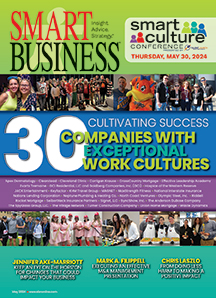“Take the risk, bring these young people in; help them develop while working for your company,” Papadourakis says. “That can help address some of the employment issues and fill the gaps that we see in the workforce.”
No dead ends here
Over the past five years, many employers have reached out to Rosedale about their aging workforces, but Wilke doesn’t believe the phenomenon is specific to trades or blue-collar jobs. U.S. Bureau of Labor statistics show an aging workforce for while-collar jobs, too.
“It’s more symptomatic of our country’s demographics than it is just for jobs in the trades,” he says, adding that pockets where the average age is higher, like airline mechanics, still do exist.
The bigger challenge is with students and people early in their working career not viewing blue collar or industrial work as their first career choice.
“The distressing thing there is they are viewing that role as something that is chaining them to a certain type of job,” Wilke says. “When the reality is, we’ve seen in our own graduates, a lot of people start in a production type of job and through their own development and motivation are somewhat quickly able to move into management roles.”
While high school leaders are more open to encouraging alternative post-secondary career paths, Wilke says parents and students often remain reluctant.
“One of the things that manufacturing needs is some additional voices touting the long-term benefits to your career of getting into a production type of role — that these days it takes a brain, it takes critical-thinking skills to be in the production line of work, and it can lead to advancement,” he says.
How to reach: Precision Kidd Steel, (800) 945-5003; Rosedale Technical College, (800) 521-6262; Precision Manufacturing Institute, (814) 333-2415; LANXESS Corp., (412) 809-1000

